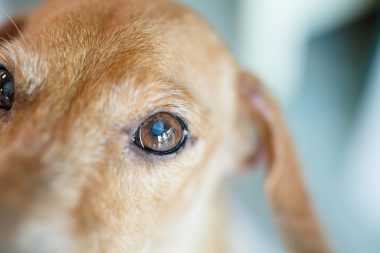
Argentine Court Recognizes Visitation Agreement for Dogs in Divorce Settlement
By Nicole Pallotta, PhD, Senior Policy Program Manager
Contents
Summary
Summary: A family court in San Isidro, Argentina, has recognized a visitation agreement for two dogs in a divorce settlement. This decision is significant because it handled the care of companion animals within a divorce framework with recognition they are sentient beings who are members of a multispecies family, rather than mere property. Court-sanctioned joint custody or visitation arrangements for companion animals are a growing trend, but are still relatively rare. This was a first-of-its-kind decision in Argentina and addressed a “legal vacuum on the regulation of the multispecies family.”
Animals are Also Affected by Divorce
In an unpublished decision issued in September 2022, Judge Diana V. Sica affirmed a shared visitation agreement for two dogs in a divorce application, noting that “animals, especially pets, are sensitive beings, that feel, that miss, that rejoice, that suffer and that acquire habits, so there is no doubt that the change brought about by the separation of the spouses will also affect them.”

The visitation arrangement was requested by the ex-couple, who agreed upon what was best for their dogs. In addition to providing for shared visitation, the agreement stipulated each spouse would have primary possession of one of the dogs. In an interesting twist, the preferences of the dogs, named Kiara and Popeye, were reportedly taken into account. One of the spouses told Argentine newspaper Clarín: “Each of them chose one of us to live with.”
“Everything that is Not Prohibited by Law is Permitted:” Courts Must Address Multispecies Families
In her ruling, Judge Sica observed that — in the absence of specific regulations — courts must provide answers to questions about the placement of nonhuman family members in cases of divorce, noting that anything not prohibited by law is allowed, as long as the principle of equity is followed:
Although our legal system has not yet advanced in such a way that it can foresee and/or regulate the situation in which, after the breakup of the union, those members who are also part of the family and have joined it will be placed – in this case two dogs; POPEYE and KIARA – this is a reality that cannot be denied and that must find a solution in those of us who have the obligation to provide a response, since it is known that everything that is not prohibited by law is permitted, even in the absence of specific regulations that so establish it. The principle of this is that of equity (art. 16 CN) and its limit will be the non-infringement of the rights of others.
Her observation that courts have a duty to step in when there is a regulatory vacuum echoes the situation in the U.S., where judges in divorce and dissolution proceedings often have discretion how to divide property — which can account for the interests of the animal even in the absence of specific legislation requiring them to do so.1

Judge Sica continued:
Thus, we can say that it is known that animals, especially pets, are sensitive beings, that feel, that miss, that rejoice, that suffer and that they acquire habits, so there is no doubt that the change brought about by the separation of the spouses will also affect them and their owners will then be in the best position to watch over their interests. Such understanding has been accepted in some countries such as Spain, as well as in our jurisprudence, as cited by the litigants in this case. . .
Her reference to Spain pertains to the fact that it updated its Civil Code in 2021 to clarify that animals are not “things” or “moveable property,” but rather “living beings endowed with sentience.” That same year — independent of the change to the Civil Code — a Spanish court awarded joint custody of a dog, in a ruling that for the first time transcended the traditional property paradigm in favor of a relational framework that recognized the emotional bond between the plaintiff and the animal.
Judge Sica also noted that the section of Argentina’s Civil and Commercial Code addressing elements that can be included in divorce settlements is not exhaustive, thus “leaving the door open” to actions such as the one before her regarding the care of the two dogs:
Moreover, in the divorce process, we currently have Article 439 of the CCyC, which refers to the effects of the divorce and indicates different points on which the spouses may dispose through the regulatory agreement, which are not exhaustive, thus leaving the door open so that other issues of interest may be addressed. And the parties to this lawsuit have made good use of it, agreeing on the pertinent issues regarding Popeye and Kiara.
Bill Would Recognize Animals as “Nonhuman Natural Persons”
Attorney Brian Knobel, who had the idea to include an agreement on the dogs’ care in the divorce application, noted that in addition to creating important jurisprudence on the multispecies family, the ruling drew attention to a bill before the Argentine Congress that would ensure companion animals’ interests are considered in divorce cases. He told Clarín:
It is the first time that the Argentine justice system affirmed visitation arrangements for animals within a divorce. This raises awareness to modify the Civil and Commercial Code, as was done in Spain, that the wellbeing of companion animals must be taken into account in the event of a separation.2
This bill would also clarify that animals are legal subjects and “nonhuman natural persons,” rather than “things.”
Diario Judicial reported that the bill, which was introduced in February 2023, includes the following text:
Non-human animals, whatever their species, are considered non-human natural persons and therefore subjects of law. Their sentience is fully recognized and they are excluded from any other characterization that affects their recognized dignity. As such they are entitled to the rights that are proper to them and to all those that this Code and special laws recognize, as well as the right not to suffer mistreatment by human beings. They shall exercise their rights through human or juridical persons with an interest in the defense of those rights.
Crucially, the bill includes a statement about enforcement and standing, expressly recognizing the right of humans or other parties of interest to vindicate animals’ legal interests in court. Including a clear enforcement mechanism to exercise their rights — whether through third parties or the animals themselves — is a key component of legislation seeking to elevate animals’ legal status by ensuring the effectiveness of legal protections.
Another positive element of the bill is that — unlike some legislation that only pertains to companion animals — it does not differentiate between categories of animals and includes the phrase, “whatever their species” in relation to animals being legal subjects.
This bill is before congress and its ultimate fate remains to be seen, but one hopes it will pass into law and create positive changes for animals in Argentina, as well as momentum for similar efforts around the world.
Conclusion
This decision recognizing the membership of animals in multispecies families follows other recent animal-forward rulings in Argentina, including two separate cases in which courts found animals to be subjects of rights: 55 rescued dachshunds (and, interestingly, their unborn puppies) in August 2022 and a cougar named Lola Limon in July 2022. Preceding these decisions were the landmark cases of a chimpanzee named Cecilia and an orangutan named Sandra, who were both recognized as nonhuman legal persons by Argentine courts 2016 and 2014, respectively.

In the U.S. and worldwide, a growing number of courts are considering the interests of companion animals in divorce and dissolution proceedings, rather than treating them as mere property. In addition, several states have enacted “pet custody” laws that expressly either empower or require courts to take animals’ interests into account during such disputes.
The Animal Legal Defense Fund works to pass legislation addressing the needs of companion animals in divorce proceedings and submits amicus briefs in custody disputes involving animals that urge courts to consider their wellbeing rather than treat them as mere property.
Further Reading
- Text of unpublished decision. “MEDINA EMMANUEL RODOLFO C/ BASCOY AMORINA BEATRIZ DEL CARMEN S/ DIVORCIO POR PRESENTACION CONJUNTA.” EXPTE. Nº SI-29770-2022. San Isidro, 26 de Septiembre de 2022.
- Resio, Mara. “Pet ownership: unprecedented court ruling for two dogs and their divorced owners.” Clarin. October 16, 2022.
- Interview with Attorney Brian Knobel on Arriba Argentinos -Channel 13 (Spanish language news segment): https://facebook.com/story.php?story_fbid=10228795584463619&id=1508345897
- Pallotta, Nicole. “Madrid Court Awards Joint Custody of a Dog in a Pioneering Ruling.” Animal Legal Defense Fund. April 5, 2022.
- Pallotta, Nicole. “Alaska Legislature Becomes First to Require Consideration of Animals’ Interests in Custody Cases.” Animal Legal Defense Fund. January 20, 2017.
References
- Beginning with Alaska in 2016, six states have enacted laws either requiring or specifically empowering courts to take into account the interests of animals in divorce cases.
- Resio, Mara. “Pet ownership: unprecedented court ruling for two dogs and their divorced owners.” Clarin. October 16, 2022.
Sign Up!
Join the Animal Legal Defense Fund's email list to stay up to date on lawsuits, legislation, and regulations affecting animals.
Focus Area
How We Work
Related
-
Madrid Court Awards Joint Custody of a Dog in a Pioneering Ruling
In a pioneering ruling issued in October 2021, a Madrid court awarded joint custody of a dog, explicitly recognizing the emotional bond between the plaintiff and the animal.April 5, 2022 Animal Law Update -
Alaska Legislature Becomes First to Require Consideration of Animals’ Interests in Custody Cases
With the adoption of an amendment to its divorce law, Alaska has become the first state to empower judges to take into account the “well-being of the animal” in custody disputes involving nonhuman family members.January 20, 2017 Animal Law Update -
Ecuador’s Constitutional Court Rules Wild Animals Are Subjects of Legal Rights Under the Rights of Nature
In January 2022, the Constitutional Court of Ecuador issued a landmark ruling that individual wild animals are subjects of legal rights under Ecuador’s “rights of nature” constitutional provision. The case involved a woolly monkey who was taken from the wild as a baby and kept unlawfully in a private home for 18 years.January 4, 2023 Animal Law Update




